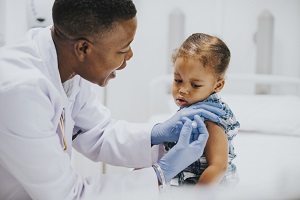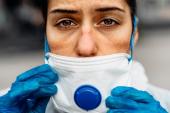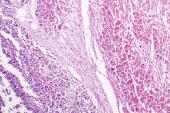COVID-19: TCTMD’s Daily Dispatch for September Week 2
We’re curating a list of COVID-19 research and other useful content, and updating it regularly.

Since March 2020, TCTMD reporter Todd Neale has been writing up breaking news and peer-reviewed research related to COVID-19 every weekday. In July 2021, we transitioned to Mondays, Wednesdays, and Fridays. If you have something to share, tell us. All of our COVID-19 coverage can be found on our COVID-19 Hub.
September 10, 2021
On Thursday, US President Joe Biden upped the intensity of measures to control COVID-19, saying that all companies with more than 100 employees must require vaccination or weekly testing, the New York Times reports. He also introduced vaccination requirements for healthcare workers, federal contractors, and most federal workers. The moves elicited both praise and attacks.
The Los Angeles Unified School District, America’s second-largest behind New York City, will require all students ages 12 and older to be vaccinated, the Associated Press reports. Students taking part in in-person extracurricular activities must receive their second dose by the end of October; for everyone else, the deadline is December 19.
WHO Director-General Tedros Adhanom Ghebreyesus, PhD, again came out against boosters of COVID-19 vaccines, urging a delay through the end of the year in order to make doses available to poorer countries, the Associated Press reports. “I will not stay silent when companies and countries that control the global supply of vaccines think the world’s poor should be satisfied with leftovers,” he told a news conference. “Because manufacturers have prioritized or been legally obliged to fulfill bilateral deals with rich countries willing to pay top dollar, low-income countries have been deprived of the tools to protect their people.”
 Officials from Mississippi are raising the alarm after eight pregnant women have died from COVID-19 in the state in the past 4 weeks, all of whom were unvaccinated, ABC News reports. Since earlier in the pandemic, Mississippi had not seen any COVID-19 deaths in pregnant women for nearly a year, a streak that ended in July. “Delta is different, and Delta is deadly, and we need to do everything we can to prevent transmission,” the state’s health officer said Wednesday. Officials urged pregnant women to get vaccinated, advice that’s consistent with guidance from the US Centers for Disease Control and Prevention (CDC) and other groups. CIDRAP News provides a roundup of three recent studies—one in JAMA and two in the New England Journal of Medicine—indicating that COVID-19 vaccines do not raise miscarriage risk.
Officials from Mississippi are raising the alarm after eight pregnant women have died from COVID-19 in the state in the past 4 weeks, all of whom were unvaccinated, ABC News reports. Since earlier in the pandemic, Mississippi had not seen any COVID-19 deaths in pregnant women for nearly a year, a streak that ended in July. “Delta is different, and Delta is deadly, and we need to do everything we can to prevent transmission,” the state’s health officer said Wednesday. Officials urged pregnant women to get vaccinated, advice that’s consistent with guidance from the US Centers for Disease Control and Prevention (CDC) and other groups. CIDRAP News provides a roundup of three recent studies—one in JAMA and two in the New England Journal of Medicine—indicating that COVID-19 vaccines do not raise miscarriage risk.
Moderna is working on a combo COVID-19 and influenza vaccine, and “hopes to eventually add vaccines it is working on for respiratory syncytial virus (RSV) and other respiratory diseases as an annual shot,” Reuters reports.
New data in Morbidity and Mortality Weekly Report shows that rates of hospitalization and death in the US did not change much when the Delta variant took over, “suggesting high, continued vaccine effectiveness against severe COVID-19.” Standardized incidence rate ratios for cases among unvaccinated versus fully vaccinated people decreased, however, indicating reduced effectiveness for preventing SARS-CoV-2 infections. “Getting vaccinated protects against severe illness from COVID-19, including the Delta variant,” the authors write. Two other MMWR papers—one looking at emergency department, urgent care, and hospital visits, and the other looking at hospitalizations among military veterans—also support protection provided by current vaccines, even when Delta is predominant. In addition, two studies in NEJM—one conducted in the United States and one in Scotland—provide support for the effectiveness of vaccines against severe outcomes and possibly against spread of the virus.
A study in NEJM indicates that anti-platelet factor 4 (PF4) antibodies fade over time in patients who develop vaccine-induced immune thrombotic thrombocytopenia (VITT) after receipt of an adenoviral vector COVID-19 vaccine, such as those manufactured by Oxford/AstraZeneca and Johnson & Johnson. “On the basis of our small series of patients, subsequent vaccination with an mRNA vaccine appears to be safe after results of platelet-activation assays for VITT antibodies have become negative,” the authors say. If such tests aren’t available, “a pragmatic approach is to wait for at least 12 weeks after an episode of VITT before the second vaccination is considered.”
The US Food and Drug Administration (FDA) declined to provide an emergency use authorization for lenzilumab for the treatment of newly hospitalized COVID-19 patients, drugmaker Humanigen announced Thursday. “In its letter, FDA stated that it was unable to conclude that the known and potential benefits of lenzilumab outweigh the known and potential risks of its use as a treatment for COVID-19,” the company said. The CEO added that the company plans to continue development.
FDA explained their thought process behind the evaluation of COVID-19 vaccines for young children in a statement released Friday, saying the agency “will follow the science.” They stress the importance of completing ongoing trials in children and then thoroughly vetting the data before starting to administer shots to children. “Until we authorize or approve a vaccine for this younger population, it’s especially important that parents and others who interact closely with children under 12 years of age get vaccinated, wear masks, and follow other recommended precautions so that we can protect those who cannot yet protect themselves through vaccination,” they write.
 In a first among US airports, Miami International Airport in Florida announced that it is testing use of dogs that can sniff out SARS-CoV-2 in a 30-day pilot program. The dogs, which will be placed at a security checkpoint for employees, achieved accuracy rates of 96% to 99% for detecting the virus in training sessions completed earlier this year.
In a first among US airports, Miami International Airport in Florida announced that it is testing use of dogs that can sniff out SARS-CoV-2 in a 30-day pilot program. The dogs, which will be placed at a security checkpoint for employees, achieved accuracy rates of 96% to 99% for detecting the virus in training sessions completed earlier this year.
September 8, 2021
Over the weekend, the number of confirmed COVID-19 cases topped 40 million in the United States, according to the Johns Hopkins COVID-19 Dashboard. The next highest total comes from India, with about 33 million cases. The US also leads to world in pandemic-related deaths, with nearly 651,000. The number of confirmed cases is likely dramatically lower than the true tally, with a blog post by US National Institutes of Health (NIH) Director Francis Collins, MD, PhD, pointing to recent research suggesting that more than 100 million Americans were infected by the end of last year.
COVID-19 is probably “here to stay with us,” as the virus continues to mutate around the globe much like influenza, World Health Organization (WHO) officials said Tuesday (CNBC). “People have said we’re going to eliminate or eradicate the virus,” the head of the WHO’s health emergencies program said at a media briefing. “No we’re not—[it’s] very, very unlikely.”
As a growing number of people seek medical attention for COVID-19, it’s again having an impact on delivery of care more broadly. While health insurer Humana has recorded a rising number of COVID-19 hospitalizations in recent weeks, inpatient and outpatient care not related to COVID-19 has declined, Axios reports. And in Idaho, “public health leaders announced Tuesday that they activated ‘crisis standards of care’ allowing healthcare rationing for the state’s northern hospitals because there are more coronavirus patients than the institutions can handle,” the AP reports.
 On Monday, Cuba began vaccinating children as young as 2 against COVID-19 in response to surging case numbers in the island nation, with the goal of getting all kids protected before school starts, Insider reports. It’s the first country to administer shots to children that young. “The country of 11 million people is using locally-produced COVID-19 vaccines—Abdala and Soberana—that are not recognized by the World Health Organization,” the story notes, adding that local clinical trials have indicated efficacy rates above 90%. In related news, Chile authorized use of the Sinovac vaccine in children as young as 6, the AP reports.
On Monday, Cuba began vaccinating children as young as 2 against COVID-19 in response to surging case numbers in the island nation, with the goal of getting all kids protected before school starts, Insider reports. It’s the first country to administer shots to children that young. “The country of 11 million people is using locally-produced COVID-19 vaccines—Abdala and Soberana—that are not recognized by the World Health Organization,” the story notes, adding that local clinical trials have indicated efficacy rates above 90%. In related news, Chile authorized use of the Sinovac vaccine in children as young as 6, the AP reports.
New data in Nature Medicine indicate that the COVID-19 vaccine from Pfizer/BioNTech is effective in pregnant women. The case-control analysis estimated a vaccine effectiveness from 7 to 56 days after the second dose of 96% for any documented infection, 97% for symptomatic infections, and 89% for COVID-19 related hospitalization. These estimates are similar to those seen in the general population.
The Coalition for Epidemic Preparedness Innovations (CEPI) warned this week of a major obstacle to developing new COVID-19 vaccines and studying the effectiveness of boosters—the lack of availability of comparator vaccines. According to STAT, “the problem stems in part from the fact that at this point in the pandemic, it isn’t considered ethical to test new vaccines against placebos; instead they would have to be tested against one of the existing shots. But getting one’s hands on licensed or authorized vaccines for study purposes is nigh on impossible; all available doses have been snapped up by countries keen to vaccinate as many of their citizens as possible.”
The pandemic has led to an increase in healthcare-associated infections at US hospitals, according to data from the Centers for Disease Control and Prevention (CDC) published in Infection Control & Hospital Epidemiology. The biggest bump was seen in central-line-associated bloodstream infections, with consistent increases in ventilator-associated events and ventilator use throughout 2020.
Joining many other companies, Bristol-Myers Squibb will require its staff in the United States, including Puerto Rico, to be vaccinated against COVID-19, with the new policy effective November 1, Reuters reports. More than 85% of the employees covered by the rule have already been vaccinated, the company noted, “adding that it continues to require weekly asymptomatic testing, mask wearing, and physical distancing of all staff on-site.”
 An NPR story delves into recent research showing evidence of “superhuman” immunity to COVID-19 in some people. These individuals “produce very high levels of antibodies, but they also make antibodies with great flexibility—likely capable of fighting off the coronavirus variants circulating in the world but also likely effective against variants that may emerge in the future.”
An NPR story delves into recent research showing evidence of “superhuman” immunity to COVID-19 in some people. These individuals “produce very high levels of antibodies, but they also make antibodies with great flexibility—likely capable of fighting off the coronavirus variants circulating in the world but also likely effective against variants that may emerge in the future.”
Todd Neale is the Associate News Editor for TCTMD and a Senior Medical Journalist. He got his start in journalism at …
Read Full Bio





Comments